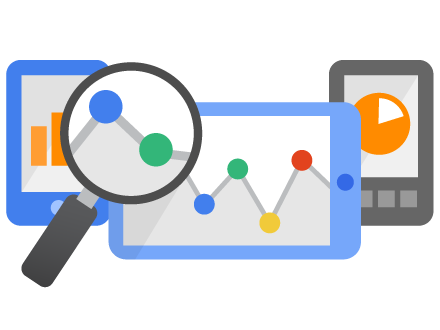
The world of marketing has been a place of feelings and emotions for quite some time. What was the ROI of the billboard in Times Square? Who knows, but it looks cool, right? Times have changed. Analytics keep growth honest.
Analytics shift the focus of growth
When you have systems that are tracking your product and activities, the numbers have a way of shifting your focus in unforeseen ways. You might have never dreamed of spending more resources on your referral loop. It might have been a throwaway feature that you put in the product just to see what would happen. Then, after you dig into the data, you realize that over 20% of all new signups are coming from this loop, and their lifetime value is higher than your average user. You know that you can make the loop much more efficient, so you change the focus of your team for the next two weeks to focus on this feature. Analytics can help stack rank your to-do list in interesting ways.
Analytics make success repeatable
When you don’t take analytics seriously, you can’t efficiently repeat past successes. If all you know is that the company made more money in Q4 than in Q3, then you know nothing. Why was Q4 better? Were there more users signing up for your product, or did you just convert higher numbers of those that did sign up? Was there a particular feature that began to be used because of a recent redesign? Did the AdWords campaign finally begin to have a positive ROI because a competitor who bid up the cost per click stopped running Google ads? If you know what is leading to your success, then you can repeat what is working (and stop what isn’t working).
Analytics predict the future of growth
Companies make bets on the future every day. They guess what the competition will do. They guess what the market will want. They guess at ways to skate to where the puck is going, instead of where it’s been. They guess. Let me be clear, the future will always be a guess to some extent, but inductive reasoning based on analytics allow us to make informed decisions about tomorrow, based on yesterday’s data.
Will the sun rise tomorrow? Technically, there is not a deductive way to know, but inductively we can reason that it will since it always has. When you look at your charts, and there is a line moving in a particular direction, there is no guarantee that it will stay the course, but if other factors remain the same, it probably will. This isn’t an exact science, but it’s better than guessing.
This is also where correlation and causation become important concepts. If your analytics show that A and B follow a similar course, then this information could be used to change the trajectory of those stats. You could run experiments to see if A and B are just corollaries of one another, or if one of them causes the other. When you uncover a causation, a process heavily aided by analytics, you have a very powerful weapon at your disposal.
